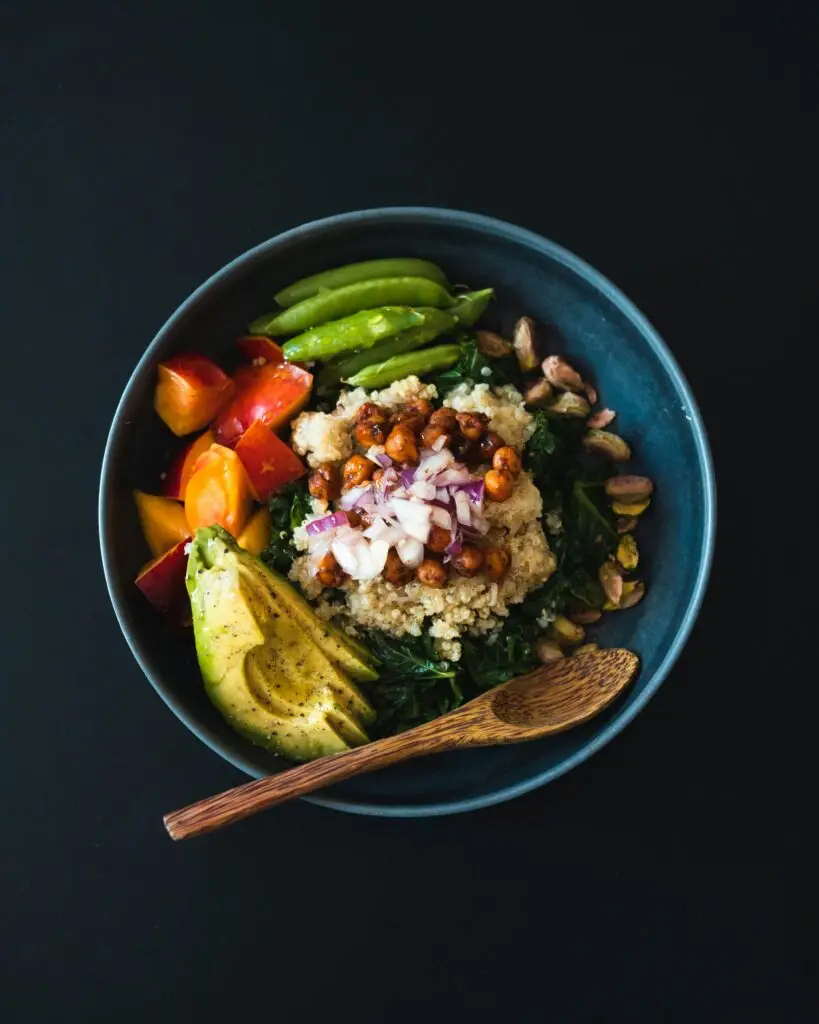

Did you know that an estimated three million people in the United States suffer from celiac disease, yet 95% of them are undiagnosed? This makes celiac disease (and gluten intolerance) the most common, AND one of the most under-diagnosed autoimmune diseases in the US. But did you also know that gluten intolerance affects your fertility?
(If you already know you’re gluten-intolerant and you’re trying to get pregnant, you’re an excellent candidate for my 12-week fertility course, The Fertility Code).
Let me tell you a little about what I’ve seen in my practice when it comes to gluten intolerance.
I had a client who came to me because she had been experiencing a variety of random symptoms like rashes, eczema, and asthma since she was a child. She also had chronic stomach aches, chronic constipation, inability to lose weight, and the weirdest symptom of all: her lips would swell at random times, and the skin around her mouth was constantly cracking and breaking. She couldn’t figure out what was going on, but she knew her health was suffering.
As soon as she came to me I immediately suspected she was gluten intolerant. I ran a stool sample to verify, and it turned out that she did indeed have celiac disease, but even after years of going to different doctors, she had never even been tested.
I advised her to remove ALL sources of gluten, as well as any refined “gluten-free” products (which are highly processed and often cross-contaminated with gluten). Within two weeks of removing all gluten, her rashes went away, the eczema disappeared, her chronic constipation was GONE, she stopped needing her inhaler, her lips stopped swelling, her mood improved, she was FINALLY able to lose weight, her exercise stamina increased … essentially everything turned around.
She couldn’t believe that for most of her life, the majority of her health issues were linked to her consumption of gluten. She has strictly been avoiding gluten now for the last several years and says her “health is better than it’s ever been.”
Amazing, right!?
Here are some of the most common symptoms of gluten intolerance, but remember that even if you don’t show ANY of these symptoms, you may still be sensitive to gluten (more on that later):

In addition to all the amazing health benefits that can result from removing gluten from your diet if you DO have an intolerance, research shows that even if you don’t test positive for celiac disease, removing gluten from your diet can improve your fertility (and hormone) health.
First of all, gluten is a well-researched fertility inhibitor, even for women without diagnosed celiac disease. Gluten intolerance has been linked to altered estrogen levels, amenorrhea, infertility, and diminished ovarian reserve. Studies also show that following a gluten-free diet improves a woman’s ability to carry a pregnancy full-term, so if you’ve experienced multiple miscarriages, you definitely want to remove gluten from your diet.
Celiac disease is an autoimmune disease, meaning your body goes into attack-mode on things that shouldn’t be attacked—in this case your small intestine. Autoimmune diseases change your immune system’s ability to tolerate foreign cells (for example, your partner’s sperm or your potential baby, another reason that gluten may be the cause of infertility and multiple miscarriage). Additionally, celiac disease can cause a selenium deficiency, which is highly associated with hypothyroidism, a condition we know can interfere with getting pregnant.
Gluten sensitivity also contributes to inflammation throughout the body. Inflammation is a critical part of your immune system, and one way that your body heals itself. However, sometimes your body can overreact to perceived injury, causing chronic inflammation in the form of allergies, aches and pains, rashes, digestion problems, and (the longer it’s left untreated) a whole slew of other health issues. One side affect of being in a chronic state of inflammation is that your body goes into super-protect-mode, and usually decides that it’s a very bad time to get pregnant. Your body thinks, “Famine! War! Bad time to get knocked up!!” and then diverts precious resources away from the job of reproduction, and instead towards protecting you from the perceived threat of whatever’s causing the chaos in your immune system.
Worst of all, many people have something called “silent” celiac disease—they may not show any of the symptoms of gluten intolerance EXCEPT for infertility. Our current standard testing methods are not adequate for detecting celiac disease, so many people who actually do have it go undiagnosed.
So while testing positive gives you a definite diagnosis, testing “normal” doesn’t mean you don’t have celiac. The rate of celiac disease may be up to 2.5 to 3.5 times greater in women with unexplained infertility, and gluten sensitivity can also be the culprit in many pregnancy issues, including gestational diabetes, high blood pressure, and preterm labor.
I always tell my clients that it’s my job to give you ALL the tools in my toolbox that can potentially make a positive difference, so while I do suggest running lab tests for celiac disease (including checking for the common celiac genes HLADQ2 and HLADQ8 and gluten antibodies), even if tests come back negative, a fertility problem is, in and of itself, a possible sign of celiac!
If you’re experiencing infertility, especially unexplained infertility, even if you don’t have any other symptoms of gluten intolerance, cutting out gluten makes sense just in case.

Let’s also talk about the impact that gluten has on the health of your gut bacteria, and in turn, your fertility.
When you have gluten intolerance, inflammation develops in the lining of the small intestine, resulting in compromised nutrient absorption, and leading to leaky gut (a condition where the intestines are chronically irritated). Just like chronic inflammation, a leaky gut puts your immune system in a constant state of “battle-ready.” If your body is inflamed and your gut is not working properly, this can prevent your digestive tract from absorbing critical nutrients. This includes protein, fats, zinc, vitamin D, iron, and selenium—all important for conception and a healthy pregnancy.
Gut dysbiosis, the term for when the microbiota in your gut become severely imbalanced, can be another consequence of gluten intolerance. Gut dysbiosis can not only prevent your body from absorbing critical nutrients, it can also damage the health of your vaginal microbiota. When your vaginal flora are out of balance, it creates an environment that is not healthy for sperm or for a fertilized egg to implant, causing issues with conception, implantation, and also with IVF success. Even if you are able to get pregnant, imbalanced vaginal microbiota can be dangerous for pregnant women, increasing the risk of second-trimester miscarriage, preterm labor, and postpartum endometriosis. If you get regular vaginal infections, this is a sure sign that your vaginal flora is out of balance, and is another possible symptom of gluten intolerance.
Ready to give up your (gluten-containing) donuts yet?!
That’s where I come in!
The simplest way to heal your gut, and therefore optimize fertility, pregnancy and hormone health, is to follow the 4R program, which is what I use with my clients, because it simplifies the process and is easy to remember.
The first R is for REMOVE: remove all foods that irritate the gut, most importantly gluten. Check your pantry, refrigerator, and anything you choose to put in your mouth, and get rid of everything that lists ‘wheat flour’ (in any form) or the words ‘contains GLUTEN’ on the ingredient label. This includes things like: bread, pasta, cereal, crackers, chips, baked goods, desserts, pretzels, granola, prepackaged sauces, salad dressings, marinades, etc. You’d be AMAZED at what gluten ends up in. The safest thing is to do is only buy and eat real, whole, organic foods that don’t have an ingredient label. Remember that pre-made and packaged convenience foods, even when they’re labeled “gluten-free”, are still a not-so-great choice. Many of these products contain highly processed rice, corn, or potato flours, tons of added sugar, toxic vegetable oils, and are often cross-contaminated with gluten anyway. Another sneaky place you might find gluten? Cosmetics! So check those labels too (and if you need guidance, read this).
Remove ALL of these gut-irritating foods from your diet:
The next R stands for REPLACE: this is where we add in digestive support to help your body properly break down, digest and assimilate the nutrients necessary for gut healing and immune support. If you experience bloating, gas, heartburn, loose stools, constipation, or feel like food is always “sitting in your stomach” after you eat, you will definitely benefit from adding in additional digestive support. You can try digestive enzymes, Betaine HCl, or 1 Tbs. of apple cider vinegar in water with your meals:
The third R stands for REINOCCULATE: this is where we focus on re-establishing healthy bacteria in the gut, healing both your intestinal microbiome and your vaginal microbiome by eating plenty of naturally fermented foods like kombucha, kimchi, pickles, sauerkraut, and kefir water, and taking a potent, high quality probiotic every single day.
My favorite probiotic is ProbioSpore. Start with 1 capsule daily and work up to 2 capsules daily over a 7 day period. Continue on 2 capsules per day. You can additionally use probiotics in the form of a vaginal suppository a few times weekly while trying to get pregnant—insert the capsules at night before bed; they will dissolve while you sleep.
The final R stands for REPAIR: in addition to rebuilding your intestinal and vaginal microbiota, you’ll also need to work on healing your gut lining. It’s important to make sure that you’re eating plenty of anti-inflammatory, gut healing foods to make sure that your body has access to critical nutrients at every meal.
Make sure you’re eating lots of these beneficial anti-inflammatory foods:
In addition, you can reduce gut inflammation and regulate hormone production with high quality, gut healing fats, like:
There are also some important supplements to take that are critical for gut healing:
The bottom line is that you need to be on a STRICT gluten free diet for AT LEAST THREE MONTHS, preferably six, to maximize the potential benefits.

Super Simple Gluten-Free Banana Pancakes
Ingredients:
2 ripe organic bananas
1 organic, pastured egg
1 heaping tbsp of raw almond butter + more for topping
½ teaspoon cinnamon
½ teaspoon vanilla extract
High quality maple syrup (optional)
Here are some of the most common symptoms of gluten intolerance, but remember that even if you don’t show ANY of these symptoms, you may still be sensitive to gluten: IBS, stomach and gut upset, fatigue, eczema, hair loss or brittleness, joint and muscle pain, migraine headaches, menstrual problems, and infertility.
Gluten is a well-researched fertility inhibitor, even for women without diagnosed celiac disease. Gluten intolerance has been linked to altered estrogen levels, amenorrhea, infertility, and diminished ovarian reserve. In addition to all the amazing health benefits that can result from removing gluten from your diet if you DO have an intolerance, research shows that even if you don’t test positive for celiac disease, removing gluten from your diet can improve: your fertility, your ability to carry a pregnancy full-term, and your hormone health.
I use the 4R program because it simplifies the process and is easy to remember. The first R is for REMOVE all foods that irritate the gut, most importantly gluten. The second R stands for REPLACE—where we add in digestive support to help your body properly break down, digest, and assimilate the nutrients necessary for gut healing and immune support. The third R stands for RE-INOCCULATE—where we focus on re-establishing healthy bacteria in the gut, healing both your intestinal microbiome and your vaginal microbiome. And, finally, the fourth R stands for REPAIR—in addition to rebuilding your intestinal and vaginal microbiota, you’ll also need to work on healing your gut lining.
The Fertility Code is the best-kept secret of women who want to take the guesswork out of conceiving, and give themselves every possible chance of getting, and staying, pregnant successfully.
Bringing together a personalized & custom approach, evidence-based information, science-backed protocols, and nurturing practices, this course is for anyone who is struggling to get pregnant, or thinking about getting pregnant soon. The course is a one-stop-shop for getting your body, mind and soul prepared for conception.
In less than 3 months, you will learn exactly what you need to do now to get pregnant successfully and have a healthy full term pregnancy with The Fertility Code.
Sarah Jane Sandy is a certified nutrition therapist, and a fertility and women’s health expert. She has helped hundreds of women increase their fertility naturally and go on to have healthy full-term pregnancies. She has been working with women and couples trying to get pregnant for over 16 years and over 90% of the women who work with her get pregnant and have healthy babies.
She also works with women trying to fix their hormone imbalances, as well as supporting women through pregnancy and the postpartum period. Learn more about her own fertility and hormone journey here. To send Sarah a message, complete her Contact Form.




Curious about your fertility health? Take this simple quiz to find out what factors may be harming your fertility, and learn what you can do about it!